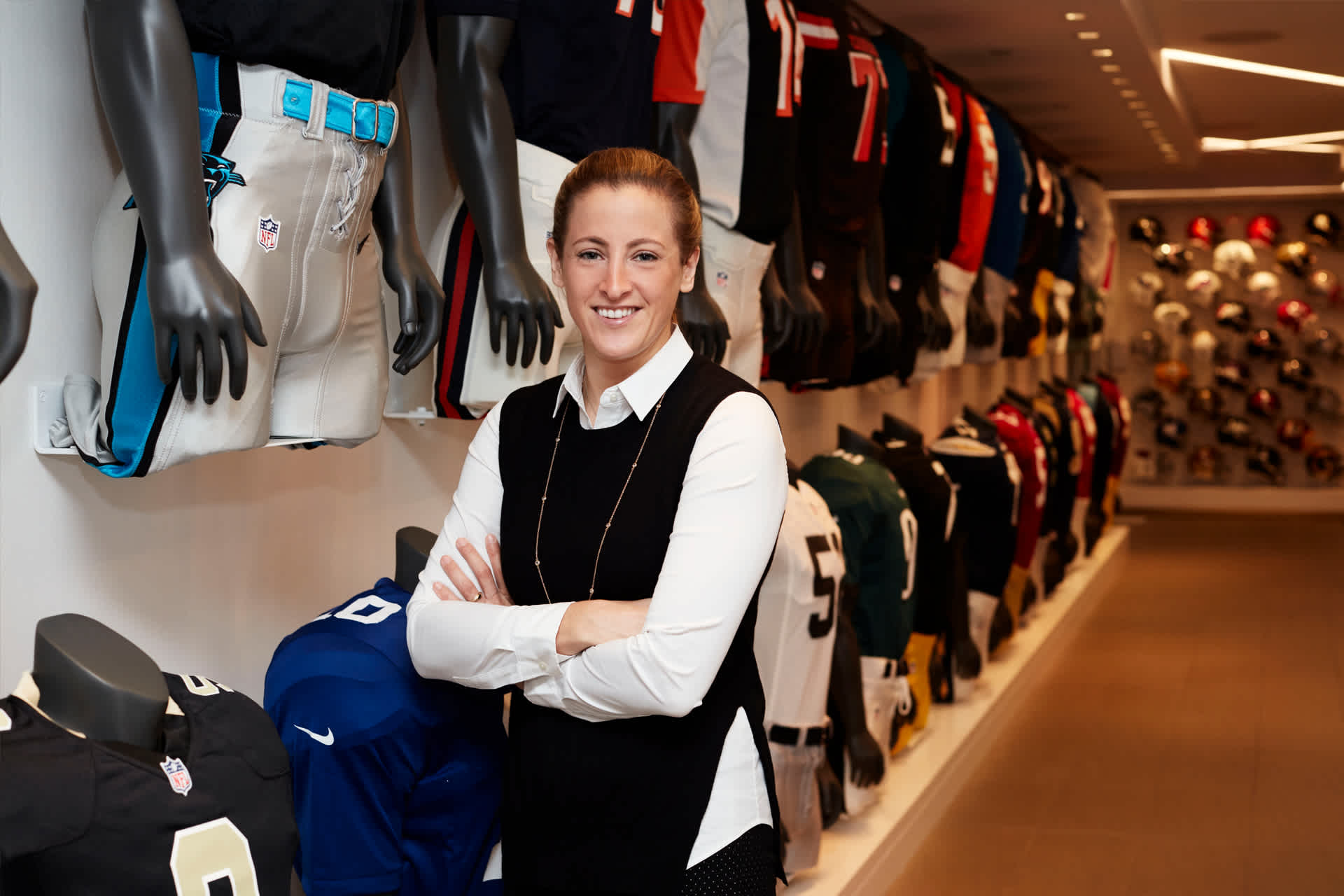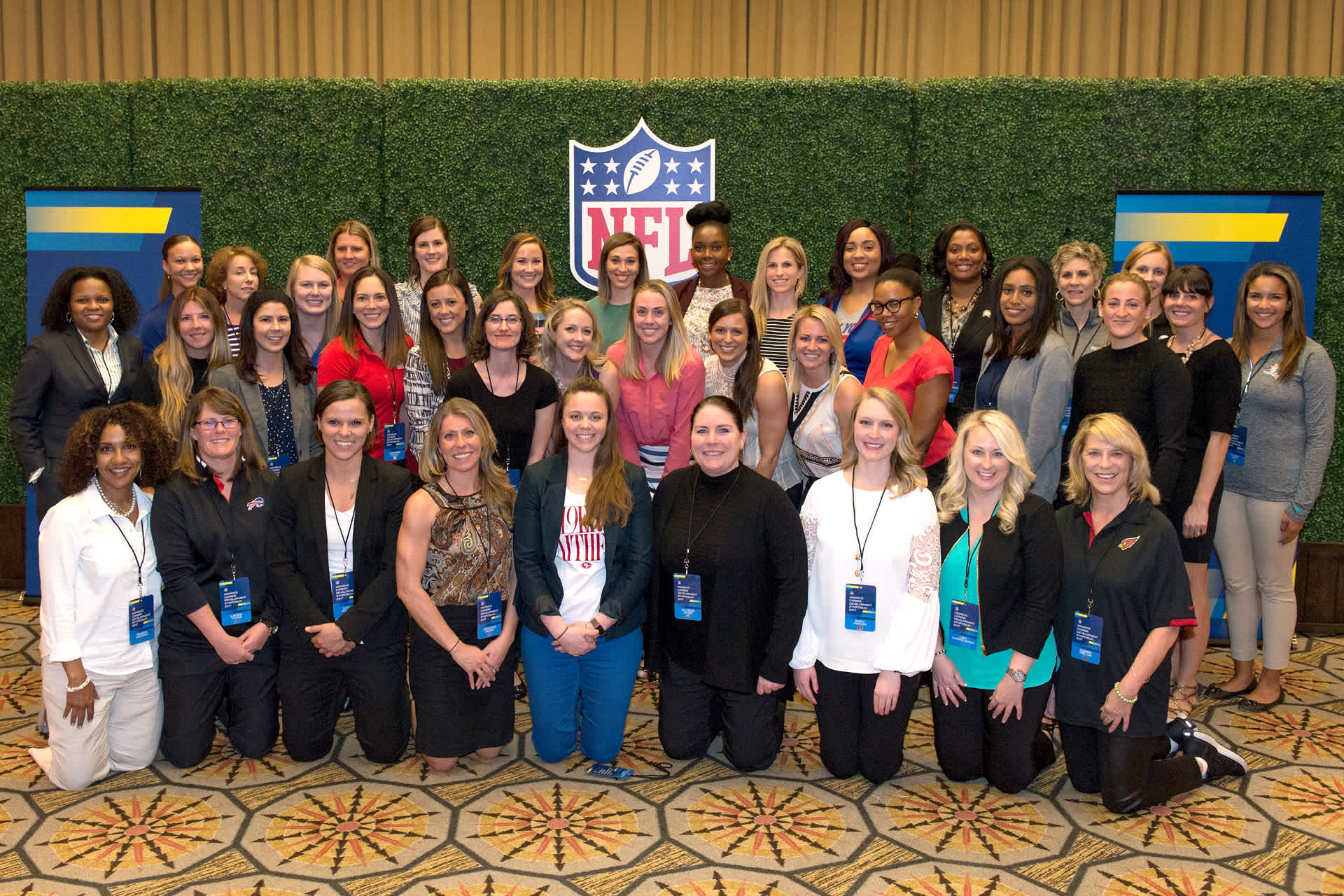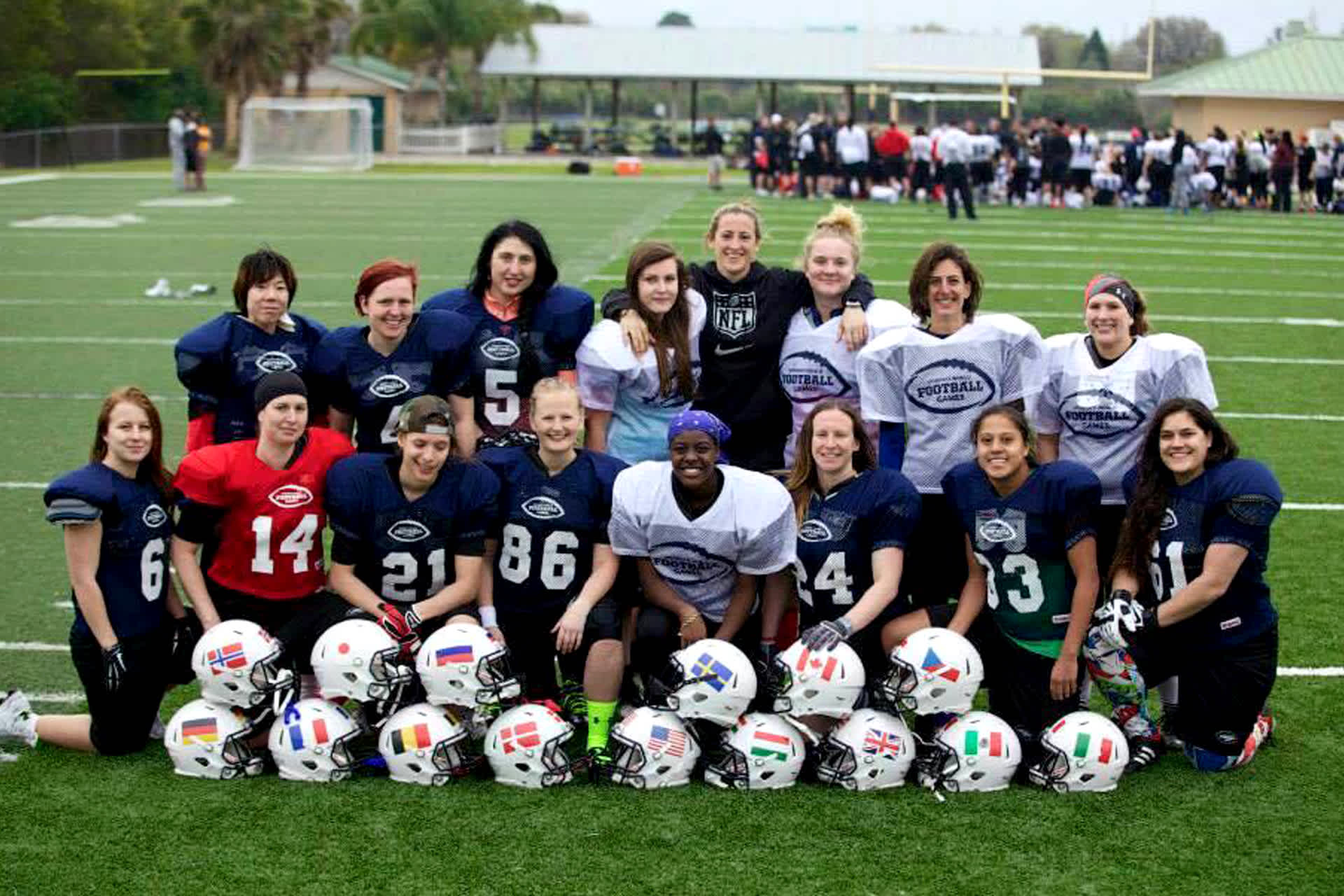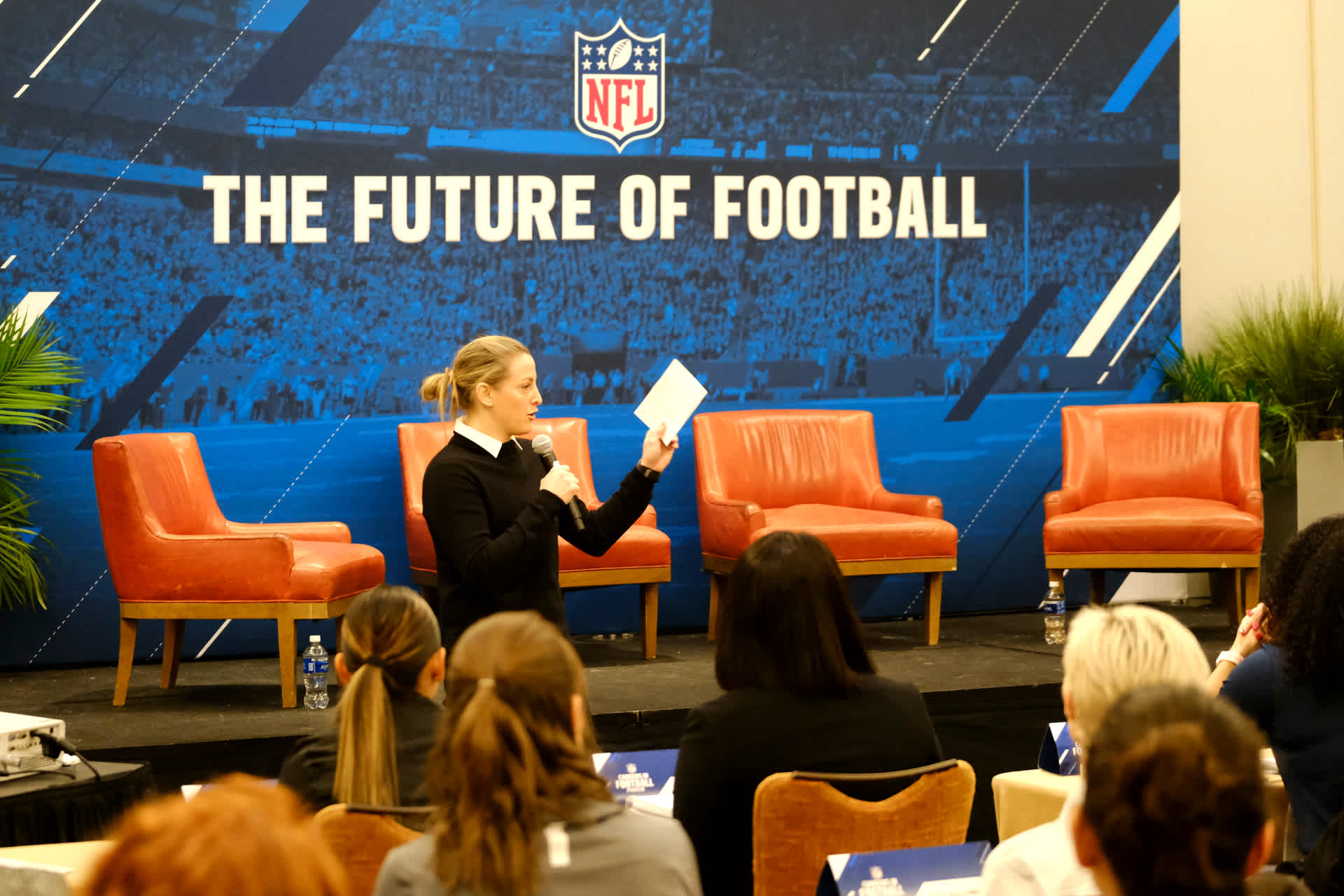Fair Play

When Canadian quarterback Sam Rapoport realized that few efforts were being made to connect women and girls to football, she decided to get to work. Now, as senior director of diversity, equity, and inclusion for the National Football League (NFL), she raises awareness so that women can share their devotion to the sport—with one another and the world.
Rapoport’s dedication and creativity helped her clear her own path. That path has led to great things, not just for herself, but for others who are underrepresented in football and athletics. Your Hot Job spoke to Rapoport about her career. She offered tips for anyone interested in working in sports or helping others make their dreams come true.

“When it came time to pick a career, I knew I had to work in football somehow. I just needed to figure out how.”
Rapoport grew up playing flag and touch football. In 2000, she became quarterback for the Canadian women's flag football team. In the early 2000s, she tried out for a Canadian women’s tackle league and became the Montreal Blitz’s captain and starting quarterback.
While attending university in Montreal, from 2000 to 2004, Rapoport studied kinesiology and business management. But she knew she wanted to pursue a career in football. She applied for an internship with the NFL. At first, she was rejected. But she didn’t let that slow her down.
“I decided to send an actual football with my résumé. It worked! And in 2003, I started my journey in the NFL.”
The NFL has only male players. And as a woman with no connections to the group, Rapoport knew that she had to make herself stand out. So she reapplied. This time, with her résumé, she sent along a real football and a note asking, “What other quarterback could accurately deliver a ball 386 miles?” That was the distance from her university to the NFL’s office.
Her ingenuity and persistence paid off. She got the job and grew with the organization. In 2009, Rapoport won the NFL Commissioner's Award for Innovation.
“I witnessed how many women love this sport, around the world. I wanted to create a way to connect to the world of women’s tackle football.”
Rapoport left the NFL in 2010 because she wanted to do something for women. She saw an opportunity to help others connect and share their interest in football. She created a program called Women’s World Football Games, an event that brought women from 21 countries together to play football for a week. “The result is that now we are connected and working together to grow the sport,” Rapoport says.

“I met hundreds of women who know this sport as well as any man. I asked myself why none of them were coaching football at the collegiate or professional level.”
Through her work with Women’s World Football Games, Rapoport recognized a problem: Women were more than capable of coaching football, but they were not considered for coaching positions at the collegiate or professional levels of the sport.
Rapoport rejoined the National Football League and helped create the NFL Women’s Forum. It’s a program designed to put women into the running for entry-level coaching, scouting, and operations jobs by getting them in the room with key decision-makers for NFL teams. “This past summer,” she says, “we had more women coaching than any male professional sport in the world—15, total.”
In 2019, Rapoport won the NFL Commissioner’s Award for her hard work and dedication.

“Draw inspiration from that representation and throw your hat in the ring.”
Now that women are visible in the sport, Rapoport says that girls—and anyone else who feels underrepresented in male-dominated sports—can draw inspiration and confidence from that success.
You can look up to women in the NFL, Rapoport says, no matter what your gender or background is. “Watch the Tampa Bay Buccaneers, Washington Commanders, Cleveland Browns, Philadelphia Eagles, and New York Giants to see women coaching football,” she says. “Watch the officials to see Sarah Thomas and Maia Chaka throw flags. Watch our athletic trainers, scouts, and women in business.”
“I absolutely love who I am, and I had to do a lot of work to get here.”
Knowing you’re different from the others at the top can feel intimidating. But Rapoport says not to let that stop you. For example, she felt like she couldn’t come out to the NFL as a gay woman. She waited until she was 29 to do so. But Rapoport now realizes that what she once thought would hold her back is exactly what makes her special. “Now that I’ve come out,” she says, “I feel like being gay is my biggest superpower.”
Rapoport also has some advice for anyone wondering where to start: “Get as much experience as you can while in high school. Volunteer to be an assistant coach or an equipment manager. Play tackle or flag football. Study the game. Those things stand out on résumés. Do things that demonstrate your love for the game, because that will differentiate you from other people who are applying.”

